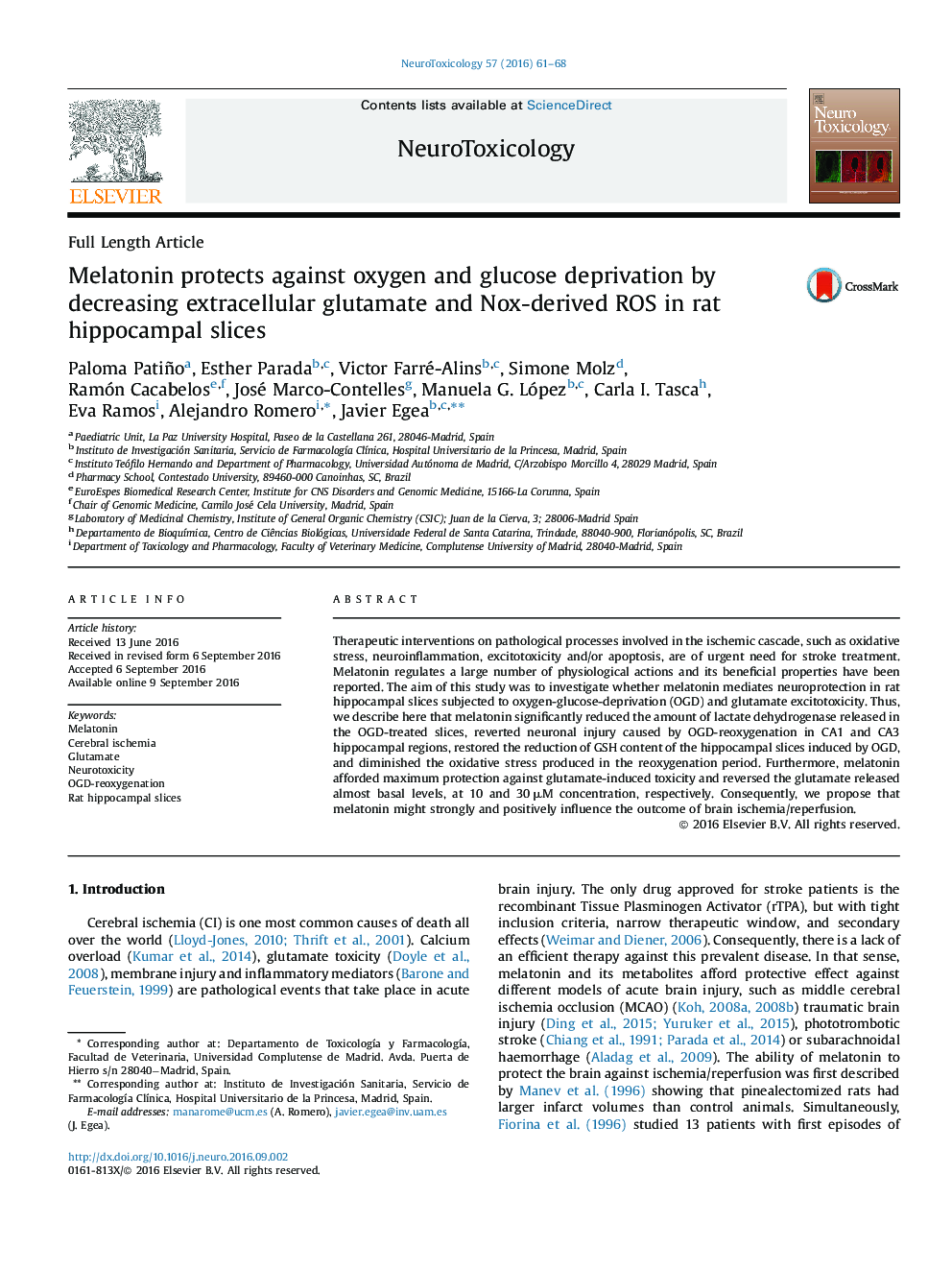| Article ID | Journal | Published Year | Pages | File Type |
|---|---|---|---|---|
| 2589404 | NeuroToxicology | 2016 | 8 Pages |
Abstract
Therapeutic interventions on pathological processes involved in the ischemic cascade, such as oxidative stress, neuroinflammation, excitotoxicity and/or apoptosis, are of urgent need for stroke treatment. Melatonin regulates a large number of physiological actions and its beneficial properties have been reported. The aim of this study was to investigate whether melatonin mediates neuroprotection in rat hippocampal slices subjected to oxygen-glucose-deprivation (OGD) and glutamate excitotoxicity. Thus, we describe here that melatonin significantly reduced the amount of lactate dehydrogenase released in the OGD-treated slices, reverted neuronal injury caused by OGD-reoxygenation in CA1 and CA3 hippocampal regions, restored the reduction of GSH content of the hippocampal slices induced by OGD, and diminished the oxidative stress produced in the reoxygenation period. Furthermore, melatonin afforded maximum protection against glutamate-induced toxicity and reversed the glutamate released almost basal levels, at 10 and 30 μM concentration, respectively. Consequently, we propose that melatonin might strongly and positively influence the outcome of brain ischemia/reperfusion.
Related Topics
Life Sciences
Environmental Science
Health, Toxicology and Mutagenesis
Authors
Paloma Patiño, Esther Parada, Victor Farré-Alins, Simone Molz, Ramón Cacabelos, José Marco-Contelles, Manuela G. López, Carla I. Tasca, Eva Ramos, Alejandro Romero, Javier Egea,
